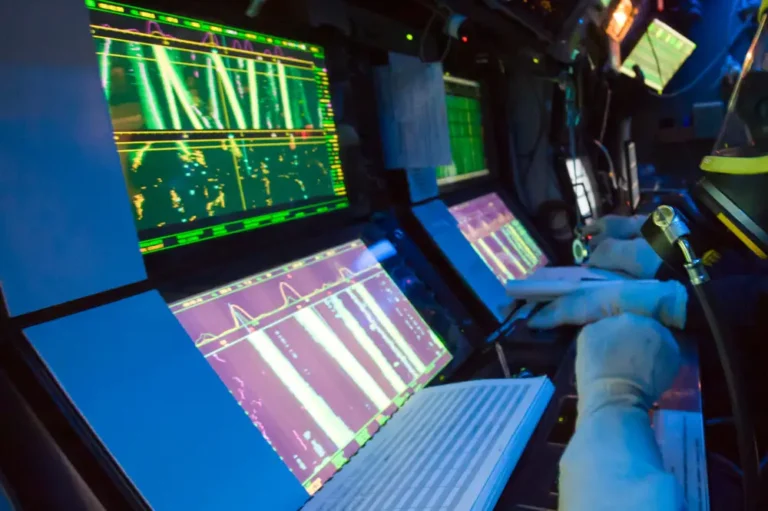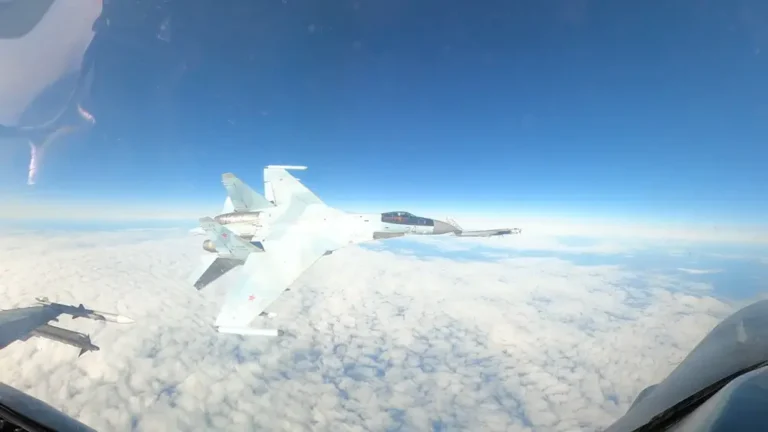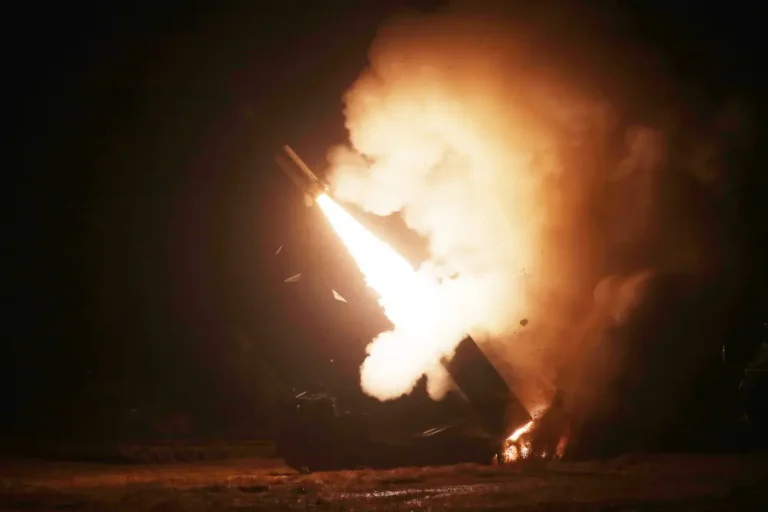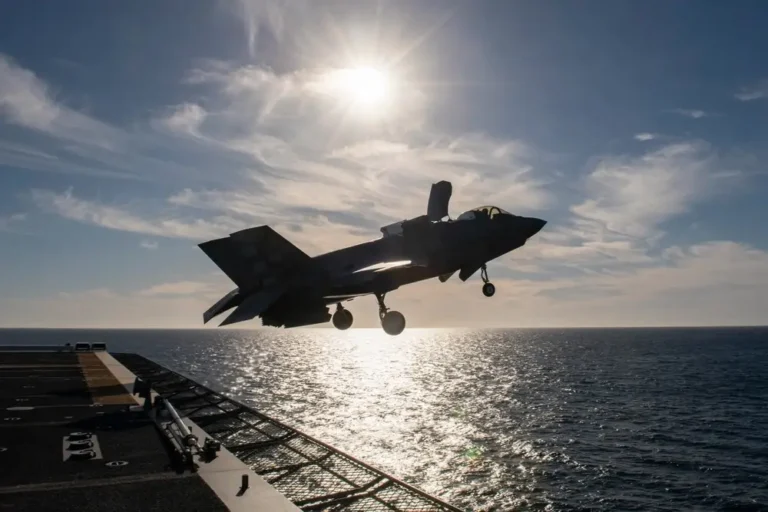North Korea sending troops into Ukraine could supercharge an already-close partnership with Russia
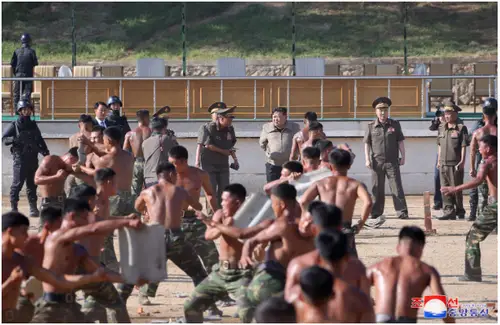
An image released by South Korea’s spy agency purports to show Kim Jong Un inspecting North Korean troops ahead of deployment to Russia.
South Korea’s claims that North Korea is readying troops to send to fight in Ukraine have put the world on high alert for a major escalation.
Experts on North Korea say the move would be a worrying upgrade to its relationship with Russia. They also said that North Korean troops could find themselves little more than cannon fodder.
On Friday, South Korea’s National Intelligence Service said Russian ships had transported about 1,500 troops from North Korea, and that they were expected to be deployed to the frontline in Ukraine after training.
A second transport is planned soon, it said.
South Korean media, meanwhile, has reported that Pyongyang is readying up to 12,000 troops.
The spy agency said its findings confirmed media reports in recent weeks that suggested the secretive state was readying to commit troops to the war.
To back its claims, the South Korean spy agency released satellite imagery purporting to show one of the transport ships carrying troops, as well as further images of what it said were hundreds of North Korean troops at Russian training grounds.
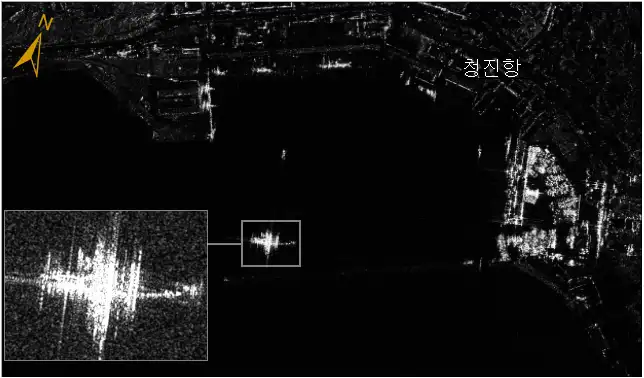
South Korea’s spy agency highlights what it says is a Russian vessel transporting North Korean troops to Russia.
On Monday, in a meeting with Russia’s ambassador to Seoul, South Korea demanded the troops’ withdrawal, the Associated Press reported.
Footage shared with CNN by the Ukrainian government also appears to show North Korean troops being kitted out with uniforms and equipment in the far east of Russia.
According to the NIS, the troops have even been given Russian uniforms and fake IDs.
Meanwhile, Ukraine’s President Volodymyr Zelenskyy has also said North Korea is preparing to join the fight.
North Korea has denied the reports.
A ‘dramatic’ step
If true, the movement of troops “represents a dramatic step in North Korea foreign relations,” said Joseph S. Bermudez Jr., an expert in North Korean defense at the Center for International and Strategic Studies.
There have been plenty of reports of North Koreans aiding Russia, but only in limited numbers and largely in a technical capacity — advisors, engineers, and munitions experts tasked with observing how North Korean munitions are faring. Few of them are likely to have crossed into Ukrainian territory.
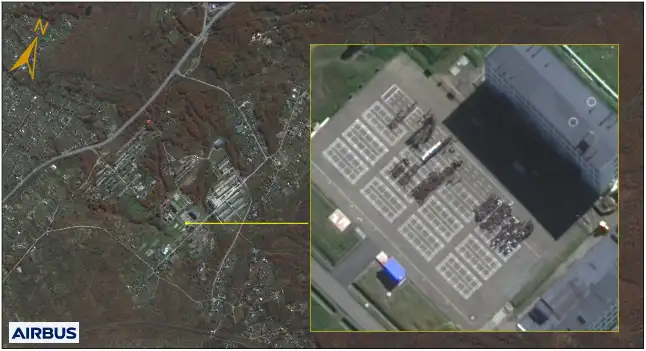
An estimated 400 North Korean personnel gathered at a Russian military facility in Ussuriysk on October 16, 2024, according to South Korean intelligence.
The possibility of training and potentially deploying large numbers of North Korean ground troops would be a major step.
The use of North Korean troops to fight may well signal “that the recruitment and training system in Russia is under tremendous stress,” Bermudez told B-17.
‘Cannon fodder’
North Korea experts told B-17 that the deployment of ground troops presents a logistical and cross-cultural challenge in terms of how they would operate.
“It is rather surprising that Russia would want such troops in combat, considering the probable logistic and other challenges that integrating such troops into Russian combat operations will likely entail,” said Bermudez.
He said the two states have some historical ties, but most North Koreans don’t speak Russian, and vice versa.
“To conduct combat operations with an allied force that doesn’t speak your language presents real problems,” he said.

North Korean leader Kim Jong Un observing special warfare training in September 2024, per South Korea’s spy agency.
Bermudez also said that there is “a significant level of racism” within Russia’s military, despite the country’s wide ethnic diversity — and said the North Korean troops may start out at the bottom of the pecking order.
Other experts said North Korean troops would experience the roughest end of Russia’s notoriously brutal military hierarchy, which marks some as expendable.
“The grim reality is that the North Korean troops will likely simply be cannon fodder for Russia,” said Edward Howell, a North Korea expert at the University of Oxford.
Jim Hoare, a former diplomat for the UK in North Korea, agreed. “I think it’s going to be a nightmare, actually,” he said.
Hoare also pointed to the risk of North Korean troops defecting, which would loom over any deployment.
In a report this month that B-17 was unable to verify, Ukrainian state broadcaster Suspilne cited an anonymous intelligence official as saying that 18 North Korean servicemen had deserted so far.
A dangerous partnership
Troop deployments to Ukraine would be a sign that the relationship between Russia and North Korea is “much closer and more dangerous than we want,” Bermudez said.
Western officials have generally dismissed the growing partnership between the countries as a desperate arrangement between rogue states, each with nowhere else to turn.
But in the short term at least, the partnership has worked for both sides.
Pyongyang receives a trade lifeline and vital military insight. North Korean weapons have been a significant help for Russian advances in Ukraine in the last year, according to The Times of London .
Kim Jong Un, North Korea’s leader, seemingly upped the ante this summer, signing a “mutual-aid” agreement that confirmed “the full support and solidarity of the DPRK government and people to the Russian government and people as regards the special military operations in Ukraine,” per North Korean state media.

Vladimir Putin and Kim Jong Un at the signing of their mutual-aid agreement in June 2024.
According to Howell, the agreement said that each country would provide the other with mutual assistance in the event of an external attack, but it was “deliberately vague.”
In Howell’s view, what was initially a purely “transactional” relationship with little ideological kinship has “escalated to new heights.”
Russia and North Korea don’t care about being seen as delinquent actors in defying sanctions, said Howell.
“They don’t care about their international status being lowered,” he added. “And I think that’s what makes this particularly concerning.”

